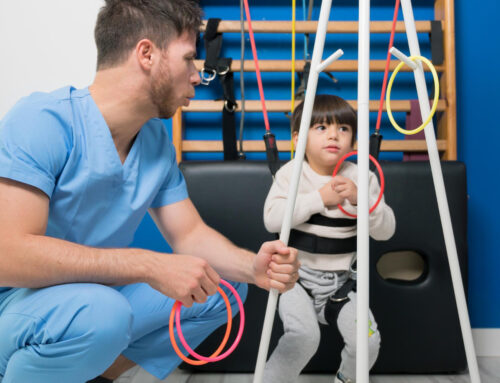Working parents, especially of younger children who aren’t in school, oftentimes feel guilty for having to go to work all of the time. They wonder if their time spent away from their children (especially if it’s both parents working), negatively impacts their young ones in any way. Unfortunately, in numerous family situations, both parents have no choice but to work. Financial obligations limit their schedule flexibility. There are also family structure variations to consider: single-parent homes, parents working full-time, parents working part-time, and parents working over-time. Additionally, we have to think about what the alternative care options are: daycare, full-time nanny, family members, etc.
So, is it bad for young children if parents have to work? According to the Pew Research Center, over 46% of households have two full-time working parents in the United States as of 2015. 17% of households have one full-time and one part-time working parent, leaving only about a quarter of households in the United States to have one parent who is not employed. One would hope that, based on these statistics, having both parents working outside of the home can’t be all that bad right? Let’s take a look at the research.
Hsin and Felfe (2014) examined several variable concerning maternal employment and the assumption that mothers who work are not spending enough time with their children. In fact, the research found that high-quality and educational time that parents spend with children does not seem to matter much when it comes to parental employment. Authors found that employed mothers who are well-educated are very capable of spending time with their children in the forms of structured and educational activities that benefit their children’s overall development. Employed mothers, whose highest level of education is high school, struggle with providing that high-quality time with their children. In simpler terms, working moms who are employed outside of the home can still positively raise their child because it’s the quality of the time spent and not so much the quantity.
Ettinger et al. (2018) conducted a study that involved approximately 600 children of African-American and Latino descent. The majority of participants were from low-income families and from three different cities in the United States. Researchers found that mothers who increased or changed the hours in which they worked during the preschool years increased their children’s chances for obesity. However, on a brighter note, families who performed structured activities in the home including family meals and regular bedtime routines, drastically reduced those odds.
McGinn et al. (2018) performed a study involving participants from 29 different countries in order to examine the relationship between parental employment and children’s future employment. Their results showed that daughters of working moms were more likely to be employed as adults. Additionally, daughters of working moms who have a higher education are more likely to fulfill supervisory positions and earn higher income. There wasn’t a correlation between working mothers and sons concerning employment, but researches noted that many sons grew up to spend more time caring for family members than other men.
This is only a tiny handful of studies available to anyone with an internet connection. Overall, research is limited when it comes to two working parents negatively impacting a child’s development. The only time employment becomes bad is when time takes away from nurturing a child’s overall growth. Working parents CAN raise healthy, successful, and happy children but there has to be a balance. Set your child up with excellent alternative day time care options. Make sure that you are structuring their day accordingly (meal times, naps, education, play-time, hygiene, outings, etc.). Any time spent with your child should be of the highest quality.
References
Patten, E. (2015). How American parents balance work and family life when both work. Pew Research Center. Viewed on 01/23/2019.
Hsin, A. & Felfe, C. (2014). When Does Time Matter? Maternal Employment, Children’s Time with Parents, and Child Development. Demography, DOI: 10.1007/s13524-014-0334-5.
Ettinger, A. K., Riley, A. W., & Price, C. E. (2018). Increasing Maternal Employment Influences Child Overweight/Obesity Among Ethnically Diverse Families. Journal of Family Issues, 39(10), 2836–2861. https://doi.org/10.1177/0192513X18760968
McGinn, K. L., Castro, M. R., & Lingo, E. L. (2018). Learning from Mum: Cross-National Evidence Linking Maternal Employment and Adult Children’s Outcomes. Work, Employment and Society. https://doi.org/10.1177/0950017018760167





